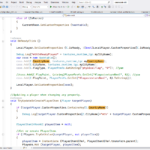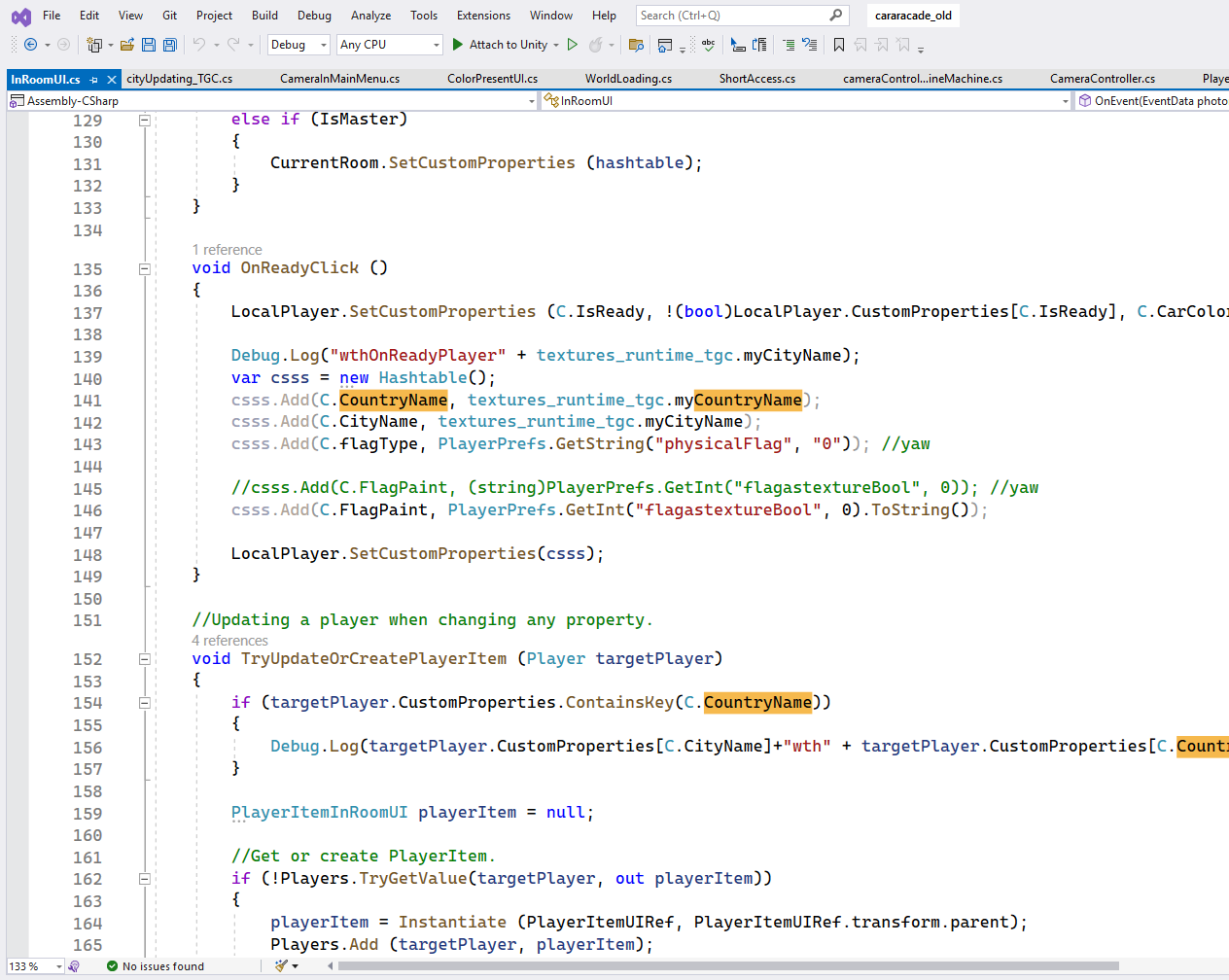Non-deterministic physics engines in game engines can introduce variability in simulation results due to factors like floating-point calculations, timing, and external influences. Some examples of non-deterministic physics engines in game engines include:
- Unity Engine: While the internal 2D/3D physics engines in Unity are deterministic, issues can arise due to floating-point handling, which can introduce indeterminism despite the physics calculations being performed at set intervals like FixedUpdate
3
.
- Unreal Engine 4 (UE4): UE4's physics engine is known to be non-deterministic, posing challenges for maintaining determinism in games like real-time strategy (RTS) games that rely on lockstep systems for replays and client-based calculations
4
.
- Bullet Physics Engine: The Bullet physics engine, commonly used in game development, can exhibit non-deterministic behavior due to timing, external calculations, and the inherent nature of CPU actions in real-life applications, leading to variations in simulation results even when running the same inputs on the same machine
2
.
These examples highlight the complexities involved in achieving deterministic physics simulations in game engines and the importance of addressing issues like floating-point calculations, timing discrepancies, and external influences to ensure consistent and reliable simulation outcomes.
what are the challenges of using non-deterministic physics engines in game development
Using non-deterministic physics engines in game development poses several challenges that can impact the reliability and consistency of simulations. Some of the key challenges include:
- Inconsistency Across Platforms: Non-deterministic physics engines can lead to different outcomes on various platforms, causing discrepancies in gameplay experiences between players using different hardware or operating systems
2
.
- Desynchronization in Multiplayer Games: In multiplayer games, non-deterministic physics engines can result in desynchronization issues, where players experience different game states due to variations in simulation results, leading to unfair advantages or gameplay inconsistencies
1
.
- Difficulty in Debugging: Tracing and debugging non-deterministic behavior in physics simulations can be challenging, akin to tracing memory leaks. This complexity can make it harder to identify and resolve issues that arise from inconsistent simulation outcomes
3
.
- Complexity in Achieving Client Prediction and Rollback: Non-deterministic physics engines can complicate the implementation of client prediction and rollback mechanisms, which are essential for handling network latency in multiplayer games. Achieving robust client prediction and rollback becomes more challenging when the physics engine itself is not deterministic
1
.
- Lack of Consistent Player Experience: Non-deterministic physics engines can lead to a lack of consistency in player experiences, where the same actions may yield different results in different gameplay sessions. This inconsistency can affect player immersion and the overall quality of the gaming experience
2
.
Addressing these challenges requires careful consideration of factors like floating-point calculations, timing discrepancies, and external influences that can introduce non-determinism in physics simulations. Game developers may need to explore strategies like using fixed-point libraries for calculations, ensuring deterministic random number generation, and structuring game logic to minimize reliance on non-deterministic elements for more reliable and consistent gameplay experiences.
what are some common causes of non-determinism in physics engines
Some common causes of non-determinism in physics engines include:
- Timing and Outside Interference: While the physics engine itself may be deterministic, external factors like timing and outside calculations can lead to variations in simulation results, causing non-deterministic behavior
1
.
- Floating-Point Handling: Issues with floating-point calculations can introduce in determinism in physics simulations, even when the physics engine is designed to be deterministic
2
.
- Multithreading: In physics engines with multithreaded solvers, the solving order can vary based on the progress of different threads, leading to non-deterministic outcomes
4
.
- Batched Deactivation: Objects going to sleep at different times due to only a subset of deactivation candidates being processed each frame can contribute to non-determinism in physics simulations
4
.
- Space Object Add/Remove Order: Different input orders can change the pair generation order of the BroadPhase, affecting solving orders and continuous collision detection, thereby introducing non-determinism
4
.
- Cached Data: Moving objects and velocities back to an earlier frame may not produce the same order of collision pairs due to the presence of persistent collision pairs, leading to non-deterministic behavior
4
.
- Solver Permutation Generator: Differences in the seed of the solver permutation generator can result in varying solving orders, contributing to non-determinism in physics simulations
4
.
- Different Processors: Not all floating-point implementations yield bitwise identical results across different processors, which can introduce non-determinism in physics simulations
4
.
These factors highlight the complexities involved in achieving determinism in physics engines and the importance of addressing issues like timing, floating-point calculations, multithreading, and data handling to ensure consistent and reliable simulation outcomes.
how can non-determinism in physics engines affect gameplay
Non-determinism in physics engines can significantly impact gameplay in various ways due to the unpredictability it introduces. Here are some ways non-determinism can affect gameplay based on the provided sources:
- Inconsistency Across Platforms: Non-deterministic physics engines can lead to different outcomes on various platforms, causing discrepancies in gameplay experiences between players using different hardware or operating systems
1
.
- Desynchronization in Multiplayer Games: In multiplayer games, non-deterministic physics engines can result in desynchronization issues, where players experience different game states due to variations in simulation results, leading to unfair advantages or gameplay inconsistencies
4
.
- Difficulty in Debugging: Tracing and debugging non-deterministic behavior in physics simulations can be challenging, making it harder to identify and resolve issues that arise from inconsistent simulation outcomes
3
.
- Lack of Consistent Player Experience: Non-deterministic physics engines can lead to a lack of consistency in player experiences, where the same actions may yield different results in different gameplay sessions. This inconsistency can affect player immersion and the overall quality of the gaming experience
2
.
- Cover and Gameplay Impact: In games like online FPS, non-determinism can affect crucial gameplay elements like cover mechanics, leading to situations where players may get shot when they believe they are safe due to discrepancies in physics simulation outcomes
5
.
- Server Overload and NPC Synchronization: Non-determinism can lead to server overload issues, especially in real-time strategy games with NPCs. Moving NPC processing from the server to clients can introduce challenges in ensuring that NPCs behave consistently across different clients, impacting game play synchronization and overall game experience
5
.
These examples highlight the diverse ways in which non-determinism in physics engines can influence game-play, emphasizing the importance of addressing determinism to ensure fair, consistent, and enjoyable gaming experiences for players across different platforms and multiplayer environments.








